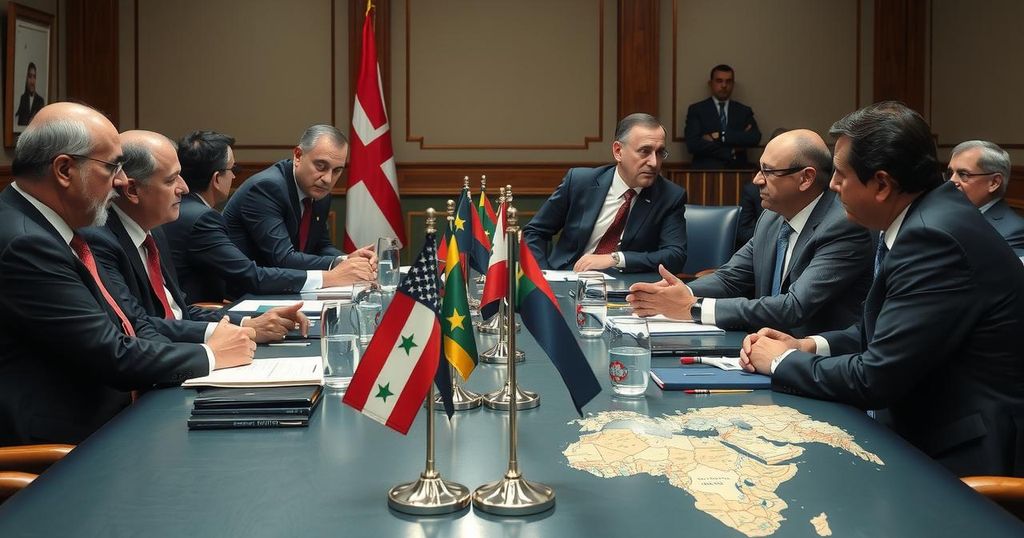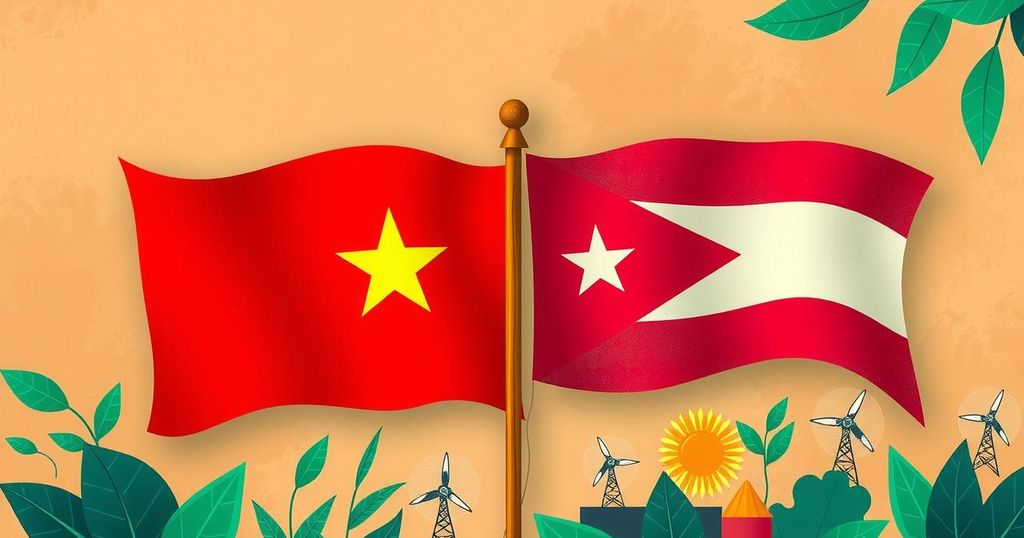The Syrian Conflict: Struggles of a Nation and the Role of Global Powers
The Syrian conflict, stemming from the 2011 protests against oppressive governance, escalated into a multifaceted struggle marked by sectarian tensions and international interventions. The Sunni majority’s fight for rights and identity has garnered support from Turkey, while Iran and other powers have complicated the conflict landscape. Despite widespread violence, the aspiration for justice among the Syrian people continues to endure.
The Syrian conflict, ignited by peaceful protests in 2011, escalated into a violent uprising amid a backdrop of longstanding oppression. The regime, predominantly Alawite and Shia, responded with extreme force against the Sunni majority, resulting in thousands of deaths and mass incarcerations. This repressive reaction transformed the peaceful protests into an armed struggle for freedom, justice, and religious rights. The involvement of Iran, Hezbollah, Russia, and Western powers intensified sectarian tensions, with Sunni Muslims perceiving their actions as a direct assault on their identity. Amidst these events, Turkey emerged as a prominent actor, supporting the Sunni rebels while also securing its regional interests. In the face of continued adversities and international intervention, the determination of Syrian opposition forces persisted. The aspirations for a free and just Islamic system remain alive among the people, despite the overwhelming violence and suffering they have endured.
The Syrian conflict began in 2011, following a series of uprisings in the Middle East known as the Arab Spring. It quickly devolved from protests against the authoritarian regime of Bashar al-Assad into a multifaceted civil war characterized by brutal repression, sectarian violence, and international intervention. The conflict has since drawn in various global powers, complicating the struggle for control and exacerbating long-standing ethnic and sectarian divisions within Syria. Understanding the motivations behind the various actors, including Iran, Turkey, Russia, and the West, is essential to navigating the intricate dynamics of the conflict and its implications for regional stability.
The Syrian conflict exemplifies the profound complexities of regional power struggles, religious sectarianism, and the fight for human rights. Despite facing severe oppression and violence, the Sunni Muslim majority’s quest for dignity and justice remains unwavering. The geopolitical maneuvers of external forces, particularly Turkey and Iran, continue to influence the course of the war. Although the future remains uncertain, the Syrian people’s hope for liberation and the establishment of a just society persists amid despair.
Original Source: indiatomorrow.net




Post Comment